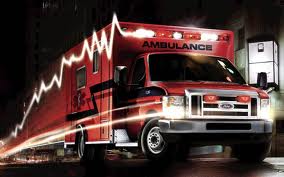 We are all too familiar with the alarming death rates of those who contract COVID, and the hyper-transmissibility of the omicron variant especially among those who have not been vaccinated. Researchers at the University of Colorado have been studying what happens to patients after they have had a bout of COVID, and some of their findings suggest COVID may not be the worst of what happens to these patients.
We are all too familiar with the alarming death rates of those who contract COVID, and the hyper-transmissibility of the omicron variant especially among those who have not been vaccinated. Researchers at the University of Colorado have been studying what happens to patients after they have had a bout of COVID, and some of their findings suggest COVID may not be the worst of what happens to these patients.
Studying a large cohort of recovered COVID patients, these scientists have documented that more than one in three of these recovered patients have been diagnosed with a subsequent psychiatric or neurological issue. Although there has not been time to follow all these patients to see what their long term health will be, there is strong suspicion that the ongoing effect of COVID is in the central nervous system. Neuroinflammation is never a good sign, but neurodegeneration that is a consequence of another disease … or of head trauma can yield downstream conditions like Parkinson’s Disease.
These scientists also have found that in animal studies the COVID virus has been able to cross the blood brain barrier and the ongoing inflammation can cause sustained inflammation of the tau and consequent tangles and neurodegeneration. These scientists point back to the parkinsonism that was documented during and after the pandemic of 1918. Their estimate is that as many as 10,000 to 100,000 cases of this kind of inflammation could result for every 100 million cases of infection. This appears to include all the strains of COVID up to and likely beyond omicron.
Who has not had the conversation…and likely many times…about getting through this pandemic and getting back to “normal?” The researchers don’t get into the new and yet to be discovered strains of COVID and their consequences, but it is pretty clear that even once we are all out of the woods we will need to be vigilant. The researchers suggest a substantial timeline for this vigilance…at least a decade for recovered patients, particularly those who have shown acute or subacute neurological symptoms. (These are not just one thing, so ask your personal physician what to be looking for.)
What are the takeaways? One, please don’t let your guard down yet. Take the advice bout upgrading your mask very seriously and watch for when you are advised to again get “boosted.” Two, we have seen, and will continue to see, anxiety in recovering COVID patients. That’s not necessarily part of these “neurological issues.” Three, know that we are all on the learning curve, and this includes the health care workers and researchers. Know that we haven’t heard or seen it all yet, so stay tuned.
There are optimistic public health suggestions that by summer we may be emerging from our pandemic. Until they can say that for certain, please stay masked and stay optimistic.
Charlotte Bishop is a Caregiver Coach, an Aging Life Care Advisor, a Geriatric Care Manager and founder of Creative Care Management, certified professionals who are geriatric advocates, resources, counselors and friends to older adults and their families in metropolitan Chicago. She also is the co-author of How Do I Know You? A Caregiver’s Lifesaver for Dealing with Dementia.




